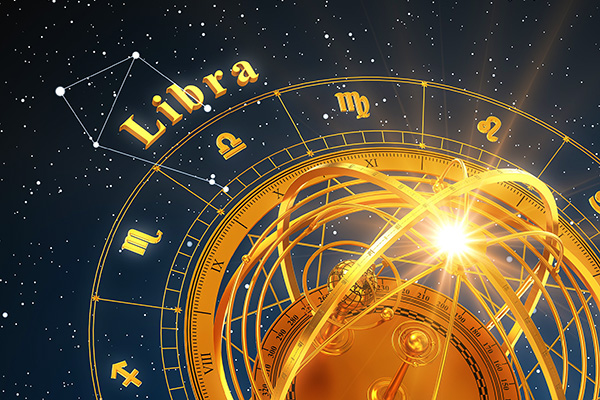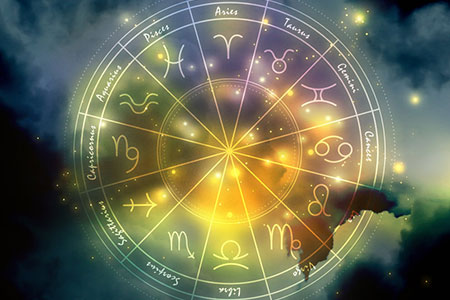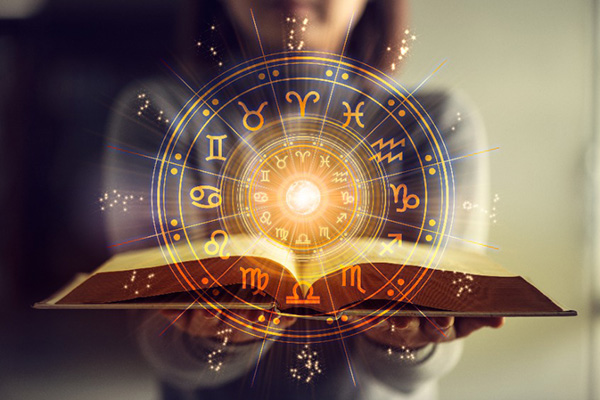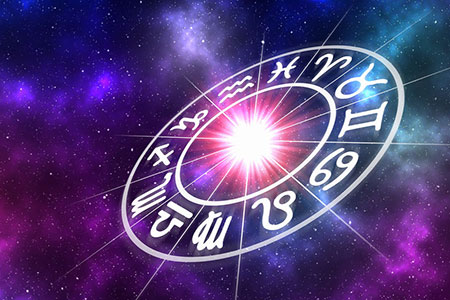vedic astrology
How Mars Retrograde Impacts Your Love Life
 From tonight until February 23, 2025, the astrological climate will be dominated by Mars Retrograde, a time when the assertive planet of passion, drive, and action appears to be moving backwards across the sky.
From tonight until February 23, 2025, the astrological climate will be dominated by Mars Retrograde, a time when the assertive planet of passion, drive, and action appears to be moving backwards across the sky.
The Mars retrograde cycle occurs approximately every two years and creates a celestial atmosphere that challenges us to slow down, reflect, and reevaluate how we navigate the aspect of our lives impacted by a retreating Mars, especially love and relationships.
This time Mars will reverse through the bold sign of Leo until January 3, 2025, before retreating further into the emotional waters of Cancer until February 23. The shift from Leo to Cancer will bring a dynamic shift in how we experience passion, intimacy, and connection.
Mars retrograde typically signals a period of inward focus. The fiery, action-oriented energy of Mars is muted, forcing us to rethink how we assert ourselves and pursue our desires.
When Mars is in retrograde, direct action often feels less effective. Misunderstandings may arise, frustrations may simmer, and the usual outlets for passion or conflict resolution may not work as intended.
In the context of relationships, Mars retrograde tends to bring old wounds and unresolved issues to the surface. The next 79 days will be a time when hidden frustrations or imbalances within partnerships come to the surface. It’s not uncommon to experience tension during this time, as retrograde forces us to confront aspects of our love lives that we may have avoided.
How To Navigate The Sun’s Debilitation In Libra
 The current debilitation of the Sun in Libra is causing challenges and disruptions in various aspects of life. In astrology, “debilitation” refers to a planet being placed in a sign where its qualities are weakened or limited.
The current debilitation of the Sun in Libra is causing challenges and disruptions in various aspects of life. In astrology, “debilitation” refers to a planet being placed in a sign where its qualities are weakened or limited.
When the Sun is debilitated in Libra, the usual energies are diminished according to the qualities of that sign. This astrological event therefore weakens the Sun’s influence in terms of authority, recognition, and personal power. As a result, many of us may experience unexpected changes in our careers, relationships, and personal lives until November 15th.
In Vedic astrology, each planet has a sign where its natural qualities are considered at their weakest, called a “debilitated” or “neecha” state. The Sun, which symbolizes our core self, vitality, ego, and sense of purpose, represents the energies of confidence and assertiveness. In Libra, however, the Sun’s qualities are tempered, tending toward compromise, diplomacy, and harmony.
The placement encourages us to prioritize cooperation over independence, as Libra’s emphasis on relationships, balance, and the perspective of others mutes the Sun’s usual assertive radiance. As a result, we feel more compelled to seek balance and harmony over confidence and assertiveness, and less inclined to take center stage or make bold, self-directed moves. Instead, there’s a focus on harmonizing with others and considering their points of view, which can shift the typical expression of personal power.
The debilitation of the Sun in Libra can be both empowering and challenging, requiring us to balance our individual goals with our relationships, and to examine where we may be overreaching for the sake of peace. While the Sun’s weakened state can feel limiting, it also offers a time to consider how cooperation and mutual respect can enhance our lives and strengthen our purpose from a place of unity rather than individualism.
How Venus Debilitation Impacts Your Love Life
 As we find ourselves in the midst of the annual Venus debilitation transit until September 18, it’s important to understand how this cosmic event tends to affect our love lives and relationships.
As we find ourselves in the midst of the annual Venus debilitation transit until September 18, it’s important to understand how this cosmic event tends to affect our love lives and relationships.
In astrology, debilitation refers to a planet being in a weaker or less favorable position in the zodiac, which affects its ability to express its natural qualities. When a planet is debilitated, it is limited in the expression of its positive qualities and may instead exhibit more challenging qualities. This concept is a key element in Vedic astrology (Jyotish), which emphasizes the dignity of the planets based on their positions in the zodiac.
Venus is considered weak in the sign of Virgo. Virgo, an earth sign ruled by Mercury, is associated with practicality, analysis and critical thinking. These qualities conflict with Venus’ natural inclinations toward love, harmony, pleasure, and artistic expression. This period can bring emotional instability, communication breakdowns and a need for introspection in your relationships.
But while a Venusian weakening is usually seen as a challenging or negative time for love and relationships, it can actually be a blessing in disguise. This cosmic event forces us to look deeper into the dynamics of our relationships and helps us identify areas that need attention or improvement.
When Venus is weakened, it strips away illusions and forces us to confront the realities of our romantic lives. By facing these truths, we have the opportunity to address unresolved issues, break unhealthy patterns, and communicate more honestly with our partners. This introspection can lead to a greater understanding of what we truly need and value in our relationships, paving the way for more authentic and meaningful connections.
There Is More To Astrology Than Horoscopes!
 Astrology is an ancient, complex metaphysical tradition that originated over 4000 years ago in Mesopotamia. Yes, indeed! Old Babylonia was its birthplace, not Harry Potter’s Hogwarts School of Witchcraft and Wizardry. Neither was it concocted by an enterprising editor of some trendy newspaper or magazine.
Astrology is an ancient, complex metaphysical tradition that originated over 4000 years ago in Mesopotamia. Yes, indeed! Old Babylonia was its birthplace, not Harry Potter’s Hogwarts School of Witchcraft and Wizardry. Neither was it concocted by an enterprising editor of some trendy newspaper or magazine.
Actually, the first horoscope in the modern press is credited to the British astrologer Richard Harold Naylor who wrote a horoscope for the newly born Princess Margaret, titled What The Stars Foretell For The New Princess. It was published three days after her birth on August 24, 1930 in the Sunday Express weekly newspaper. It was so popular with readers that he was asked to write more horoscopes for the publication.
The sun sign astrology we see in modern day horoscopes was not originally intended for the individual, but it has become a useful gateway to entice people into a deeper exploration of astrology. Nothing wrong with a little ‘cheese for the mice,’ as long as we bear in mind that true astrology does not exclusively revolve around our birth sun sign.
Our sun sign is only one letter of the astrological alphabet, albeit a highly significant letter. The other planets in our natal chart do view our sun as the center of things, but the cosmos and our individual lives contain so much more.
The layered complexity of a nativity, a client’s individual birth story crystallized in an exact moment of time and place, is a story as rich as the history that birthed it. Ancient Babylonia carried the first seeds of the western, tropical system of astrology that many of us practice today.
A Brief History Of Astrology
 The energies of the planets and stars affect us on many levels every day, whether we were aware of it or not. The earliest humans looked especially to the movements and phases of the Sun and Moon to guide them in their decisions about when to hunt, when to plant and harvest, and when to prepare for winter or migrate.
The energies of the planets and stars affect us on many levels every day, whether we were aware of it or not. The earliest humans looked especially to the movements and phases of the Sun and Moon to guide them in their decisions about when to hunt, when to plant and harvest, and when to prepare for winter or migrate.
From this evolved the practice and study of Astrology. The early civilizations of Mesopotamia were the first to observe the patterns formed by stars in the galaxy as long ago as 3000 BC, while Indian astrology began to emerge as far back as 1200 BC.
The original astrologers identified five ‘wandering stars,’ which together with the sun and moon became the seven original ‘planets.’ More planets were of course identified over time, as technology advanced to introduce the telescope and other astronomical devises.
The Babylonians are generally credited for first developing formal Astrology, because they developed astrological charts to predict the recurrence of the seasons and certain celestial events. Centuries later, Ancient Egypt and Greece discovered Babylonian Astrology, where it soon became highly regarded as a science and was eventually also embraced by the Romans, as well as in the Middle East. In time, its popularity spread throughout the rest of the world. Today, we still use the Roman names for the zodiac signs.
Meanwhile, separate systems of Astrology also emerged in India, China, and Mesoamerica. It remains unclear whether the Babylonian, Indian (known today as Hindu or Vedic Astrology) and Chinese systems of Astrology evolved in isolation and independently, or whether they mutually influenced each other. There are many similarities between these systems, but also many distinct differences. Scholars have been studying and debating this for centuries, but the matter remains inconclusive.
Fun Facts You Never Knew About Your Zodiac Sign
 The zodiac signs we are born under afford us certain personality traits, talents and gifts in our lifetime. Over the course of one’s life you can typically see these traits in an individual’s personality and life choices.
The zodiac signs we are born under afford us certain personality traits, talents and gifts in our lifetime. Over the course of one’s life you can typically see these traits in an individual’s personality and life choices.
Astrology has been around for centuries and offer us a special insight into our life path. The Zodiac signs can be a lot of fun to investigate, even for the lay person. If you look closely at the traits of your own sign you will most likely discover many accurate descriptions of your personality in your sign that may be hard to deny.
You may also come across certain traits and fun nuggets of information that may surprise you. For example, it has been noted by astrologers that some of the zodiac signs tend to lean more towards having stronger psychic ability. These are known as the so-called ‘psychic signs,’ namely Cancer, Pisces, Scorpio and Libra.
If you were born under one of these signs, but do not consider yourself psychic, then you may want to take another look. It could be that you are more gifted than you realize, but you are not making proper use of your psychic talents.
Another fun principal of astrology centers on those who are born on the cusp between two signs, meaning they have trails of both signs. For example, those born on April 19 or 20 on the Aries-Taurus Cusp are literally ‘born leaders’ because they have the natural leadership traits of Aries combined with the inner strength and bullish perseverance of Taurus.
Another interesting ‘born leader’ is the Pisces-Aries Cusp born March 19 to 26. They strike the perfect balance between being a dreamer and idealist, while also being a determined, tough, and sometimes highly opinionated ‘go-getter.’ They bring the best of both worlds to innovative leadership positions that require imagination and an unconventional approach.
